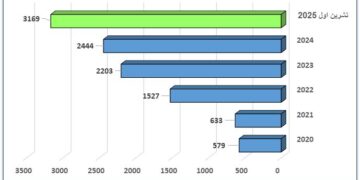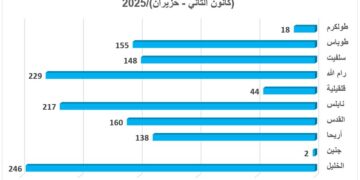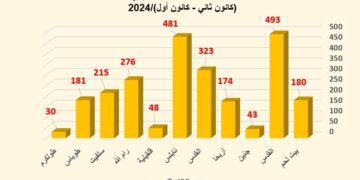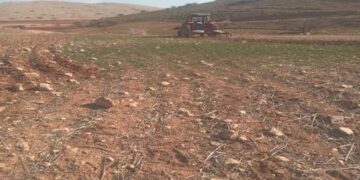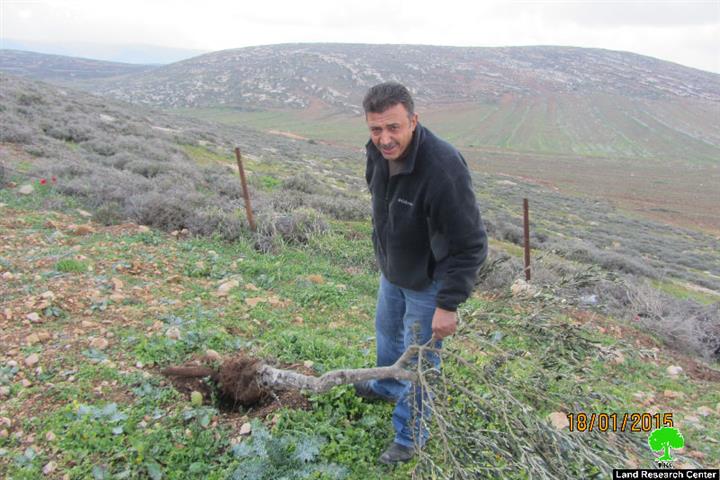Violation: attacking a Palestinian citizen
Date: 17/01/2015
Location: Wad al-Simsim/ Hebron governorate
Perpetrators: Havat Me 'or
Victims: citizen Ahmad Makharza
Details:
Extreme colonists on January 17, 2015 attacked the houses of Wad al-Simsim residents, south al-Dahriya town , assaulted some of the people and cursed them using profanity words.
Ahmad Makharza(42) said that around at 5:00 p.m. , two people approached his house. At first, Ahamd thought that they were guests and asked his nephews Tamer(11) and Jamal (19) to keep the guarding dogs away from them. Surprisingly, Ahmad noticed that one of the men held a metal pipe in his hand and attempted to hit Samer with it; a fight arose between me and the guy and I managed to snatch the pipe from the perpetrator hand after he hit me with it on the hand.
Ahmad also added: " the perpetrators fled the place cursing us in Arabic; I knew one of them named Avi , whom I helped pulling his car that stuck in mud two months ago"
Ahmad concluded saying: " they were in their 40s and they carried their attacks coming from the outpost Havat Me 'or, east of Tene colony that is located on lands of al-Dahriya town".
Land Research Center asked citizen Ahmad about the attacks and violations of colonists in the area, the following was reported :
- In 1995, colonist of Havat Me 'or attacked Ahamd while grazing his sheep and shot fire at his herd leaving five sheep dead.
- Colonists of Havat Me 'or usually release their livestock and horses grazing in Ahamd's agricultural lands.
- Colonists chase Palestinian shepherds and ban them from accessing the water cistern located in the area; Ahmad point out that colonists who recently attacked him denied him access to water cistern to let his sheep drink from there. As a result, Ahmad submitted a complaint in the police station of Qiryat Arba colony against those colonists.
It should be marked that around 40 members from Makharza family reside in the area of Wad al-Simsim, south al-Dahriya town. Agriculture and livestock husbandry are the only two jobs for the area's residents, who provide water for their sheep from four old cisterns in the area and shelter them in old caves.
Prepared by
The Land Research Center
LRC




